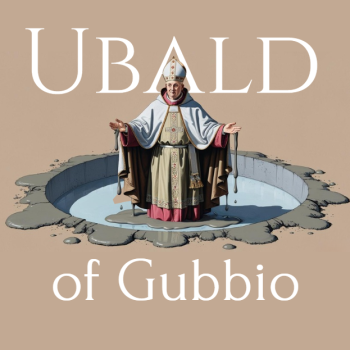Ambrose’s advocacy gave rise to the concept of an elite virginal group who would manifest the highest ideals of community, devotion and sacrifice. These ideals translated into the formation of monasteries and convents committed to celibacy as a higher road toward spiritual attainment. In addition, Ambrose’s elevated reverence of Mary as the epitome of virginity sowed seeds that blossomed into an array of doctrines surrounding the mother of Jesus: her own immaculate conception (born without sin), perpetual virginity (her other children were Joseph’s from a previous marriage), and bodily assumption into heaven. The Protestant Reformers repudiated such veneration of Mary as well as the sanctity of celibacy. Ambrose also inadvertently contributed to historical misconceptions of female spiritual and moral deficiency. His anthropology reflected that of his day whereby men were justified on “scientific” grounds as ontologically superior to women in authority, virtue, creativity and even, believe it or not, reproduction.
Consequently, can we glean anything from Ambrose’s stance in favor of the celibate life? What might be the implications of a broadened perspective in regard to sexuality? We would agree with Augustine that sex as created by God is good, yet we would also concur with Ambrose that sexuality has been distorted by sin. Our own experience in contemporary American culture bears this out. Rather than serving as a requisite expression of relational intimacy and fidelity, sex has developed into more of a prerequisite to relationship. Practicing sexual restraint in our day is most often portrayed as anywhere from quaint to pathological. Committed to a nonjudgmental society wherein all relationships, regardless of what and with whom, are equally viable, negotiable, and disposable, sex has diminished into little more than another mode of self-gratification completely bereft of its created, communicative powers (outside of those associated with disease, of course).
Author Kathleen Norris in her bestseller entitled The Cloister Walk concurs when she writes “Americans are remarkably tone-deaf when it comes to the expression of sexuality. The jiggle and lure of breasts and butt, potency and pectorals assault us everywhere -- billboards, magazines, television, movies, [Internet!]. Orgasm becomes just another goal; we undress for success. It’s no surprise that the quiet tones of celibacy are lost; that we have such trouble comprehending what it could mean to dedicate one’s sexual drives in such a way that genital activity and procreation are precluded.” Indeed, reclaiming any of Ambrose’s wonder regarding the spirituality and worth of sexuality underlying the act itself is problematic if not downright impossible.
Norris spent a year with members of a Benedictine monastery. Though a Presbyterian herself, and married, she was struck by what those who had devoted themselves to celibacy emanated through their lives. She wrote, “Celibate people have taught me that celibacy, practiced rightly, does indeed have something valuable to say to the rest of us.” The celibate rejects the consumerist model of sexuality, a model that reduces people, especially women, to the sum of her parts. Instead, you learn to relate to people as human beings. You learn how to exercise true friendship, to attend and to listen and to love without possessiveness, imposition, or exploitation. You are able to make yourself available to others both body and soul without any of the usual suspect overtones. Norris recalled boarding this bus after a week at the monastery and taking the first available seat beside a man who soon engaged her in conversation. It took her a while to realize that the man wasn’t simply being friendly but was coming on to her. She wrote, “I remember feeling foolish for being so slow to catch on. I remember thinking, ‘No wonder this guy is acting so strange; he didn’t take a vow of celibacy.’”
Celibacy remains required of Catholic priests, nuns, and monks. Due to the unfortunate incorporation of Greek dualism into early church theology, it became common practice to draw a disparaging distinction between the physical and the spiritual. Celibacy, regarded as non-physical and thus a superior state (somewhat of a misinterpretation of Ambrose), was imposed upon all clergy in an attempt to heighten their spirituality. The Reformers rejected such impositions. To marry was not to sin nor was sex within marriage. Sex without marriage was prohibited but only because sex was regarded as a holy thing, not a bad thing. Having revealed himself to us physically in Jesus Christ, God describes our relationship with Him in intimate, physical, even sexual terms. Jesus is our groom and we are his bride. History moves toward a final consummation of our bond to Christ at what the Bible call the “wedding feast of the Lamb.” By faith you are destined to intimately know God, in a biblical way, forever. You may consider this disgusting, but that would be only because you harbor a view of sex that is too low.





